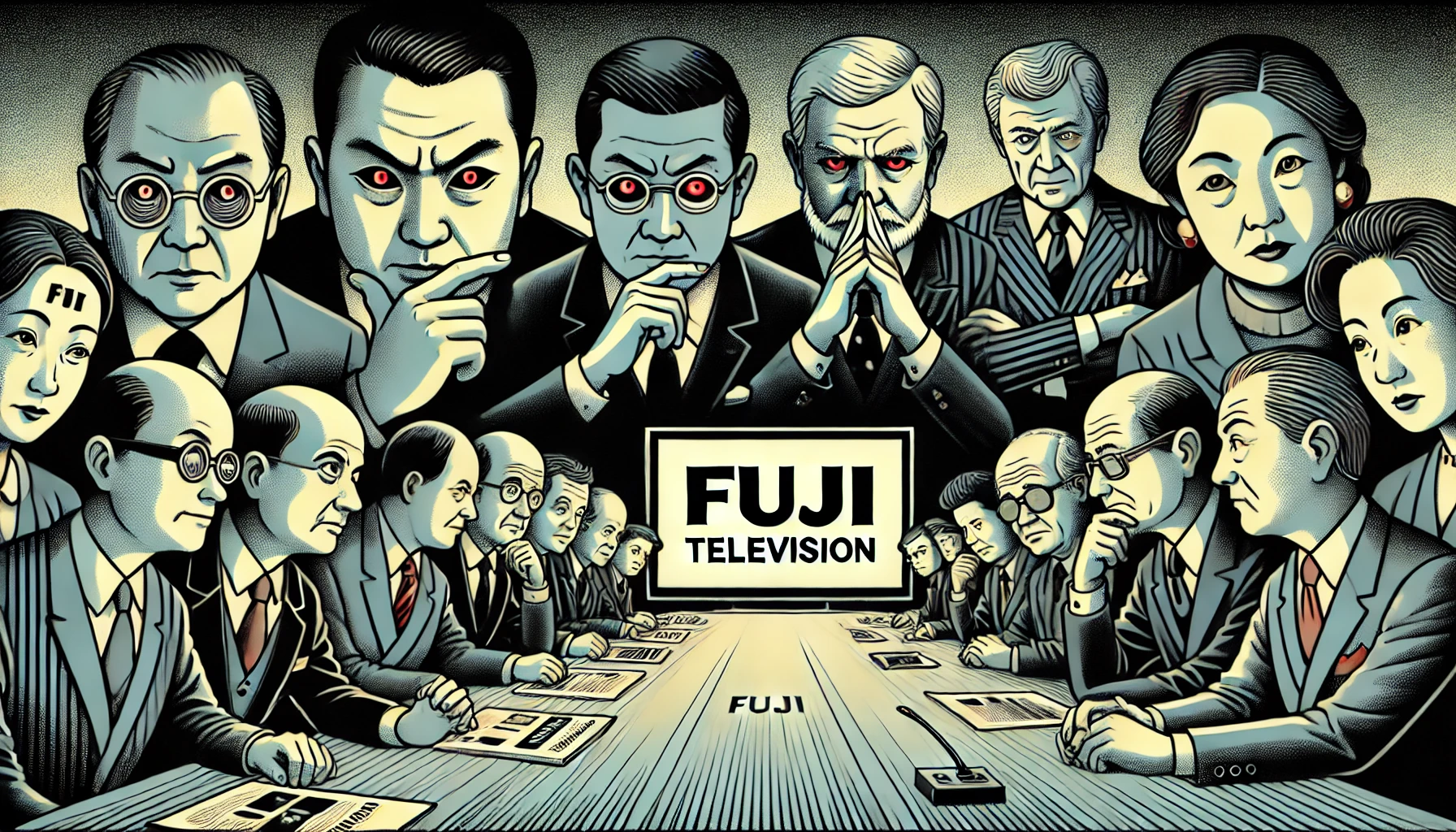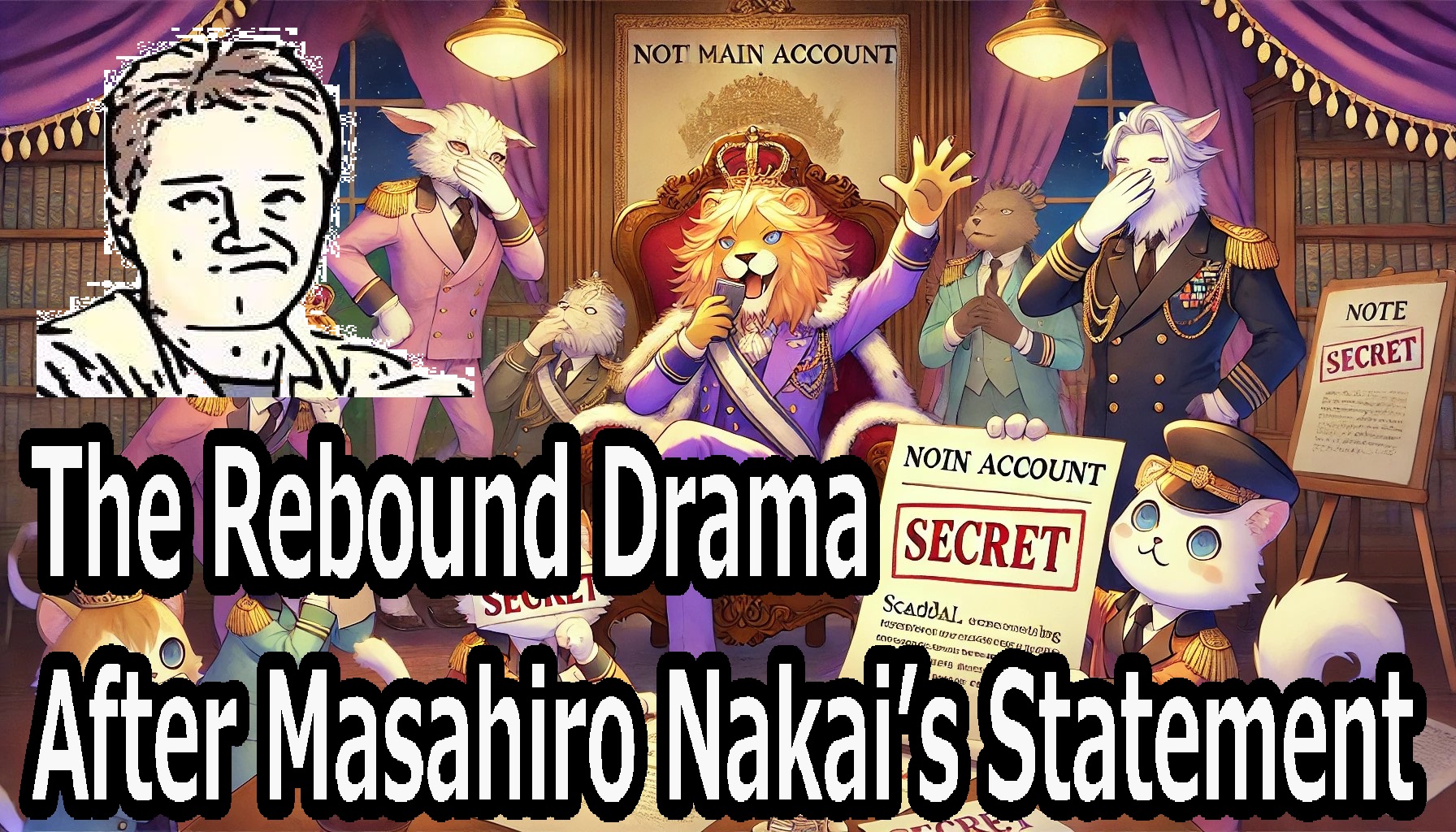Once hailed with the slogan “If it’s not interesting, it’s not TV,” Fuji Television built a golden era during Japan’s economic bubble. However, it has now become a symbol of the struggling “old media,” suffering from declining viewership, sponsor withdrawals, and compliance issues. Amidst this, the possibility of Horiemon making a comeback has emerged. Twenty years after the Livedoor incident, can he avoid repeating past mistakes? Just like Elon Musk’s acquisition of X (formerly Twitter), can Horiemon 2.0 take over Fuji TV and revolutionize the media industry?
Review of Horiemon 1.0
In 2005, Takafumi Horie, known as Horiemon, led Livedoor in acquiring shares of Nippon Broadcasting, Fuji Television’s parent company, shocking the media industry. At the time, the rapid growth of the internet fueled concerns about the future of the television industry. Horie boldly declared, “TV is old, the future is the internet,” directly challenging the traditional media sector.
The Situation and Challenges at the Time
Livedoor’s strategy was to become the largest shareholder of Nippon Broadcasting, thereby indirectly gaining control over Fuji Television. However, Fuji Television fiercely opposed the move, supported by the Sankei Shimbun Group, Dentsu, and even political forces. Ultimately, Fuji TV partnered with SBI Holdings (formerly SoftBank Investment) to neutralize Livedoor’s influence.
The Failure of the Acquisition and Its Consequences
As a result, Livedoor’s attempt to acquire Fuji Television ended in failure. Horie was later arrested on charges of securities law violations (window dressing accounting). Livedoor was delisted, and Horie himself received a prison sentence, bringing his ambitious media industry challenge to an unfortunate end.
Looking Back
Reflecting on the events, Livedoor’s acquisition attempt was not just a corporate buyout failure but highlighted the struggle between an entrepreneur pushing for an internet revolution and traditional media’s resistance. Many people felt that Horie’s arrest was more about making an example of an overly ambitious entrepreneur from the IT bubble era.

The Potential of Horiemon 2.0 – How Have Things Changed in 20 Years?
Over the past 20 years, the media landscape has changed dramatically. The decline of old media has accelerated, and the influence of digital media has become overwhelming. The dominance of television has crumbled, and the advertising market has become increasingly fragmented.
The Decline of Old Media
TV viewership has dropped significantly, particularly among younger generations who have shifted to platforms like YouTube and TikTok. Advertisers are increasingly prioritizing digital marketing through influencers and targeted ads over traditional TV commercials. As a result, TV networks are experiencing declining revenues, with sponsors becoming more cautious, leading to the collapse of the traditional business model.
The Impact of Compliance
The stricter compliance landscape has significantly impacted the media industry. Regulations and viewer complaints have forced companies to prioritize brand image and avoid controversial content. This has made it difficult to create bold and unique programming, further diminishing television’s appeal.
Changes in Talent Business
In the past, television appearances were a major source of income for celebrities. However, with the rise of YouTube and social media, many talents can now build their own brands and monetize their content directly. As a result, TV stations struggle to discover and retain new stars.

The Feasibility of Raising Funds
Fuji Media Holdings has an estimated market capitalization of approximately 400 billion yen. Assuming that 25% of shares (around 100 billion yen) are required to influence voting rights, it would be unrealistic for Horie to finance this alone.
The Potential of Crowdfunding
A possible approach would be to launch a campaign with the slogan “Let’s all buy Fuji TV!” through social media and gather investments from the public. However, realistically, the funds collected might fall short of expectations. Nevertheless, such a movement could attract the support of existing shareholders, increasing the chances of success.
Support from Elon Musk
If a billionaire like Elon Musk were to support the endeavor, it could become feasible. However, Japan’s Broadcasting Law imposes a foreign ownership limit of 20%, making it difficult for foreign investors to hold significant influence.
Partnership with Masayoshi Son
A buyout strategy through partnerships with SoftBank or SBI Holdings is another option. If Masayoshi Son were to support Horie as Fuji TV’s CEO, the chances of success would increase dramatically in terms of funding, domestic influence, and leverage over Dentsu. However, given that Son played a crucial role in blocking the acquisition back in 2005, this possibility remains highly unlikely.

Realistic Scenarios and Future Prospects
Acquiring Fuji Television is not just a financial challenge but involves navigating the complex political, economic, and media landscape. The presence of major players such as Masayoshi Son, Dentsu, and growing influence from Korean capital adds further complexity to the situation.
Even though traditional media is in decline, it still holds significant influence, and many competitors are eyeing Fuji Television. If new players such as Rakuten enter the competition, it could turn into a media industry battle royale. Television networks still hold numerous advantages.
Expectations for Change
Many people hope that Horiemon 2.0 can challenge old media and bring about reform. The year 2024 has seen significant discussions around the future of traditional and digital media, and the media landscape is undoubtedly evolving.
Acquiring a company is not the only way to bring about industry reform. There are various other strategies to consider, and this scenario is just one of many possibilities.
What lies ahead for Fuji Television? Will Horiemon 2.0 revive the spirit of “If it’s not interesting, it’s not TV”? Expectations are running high.




